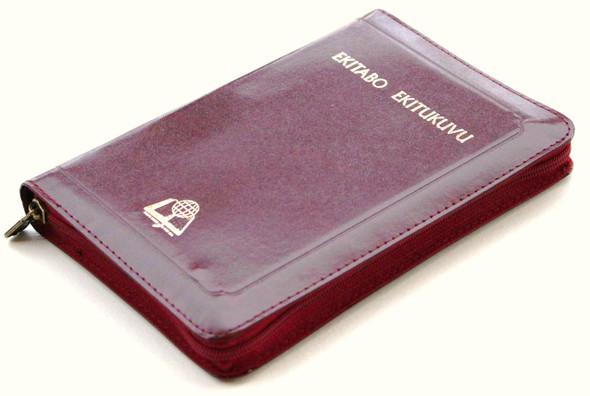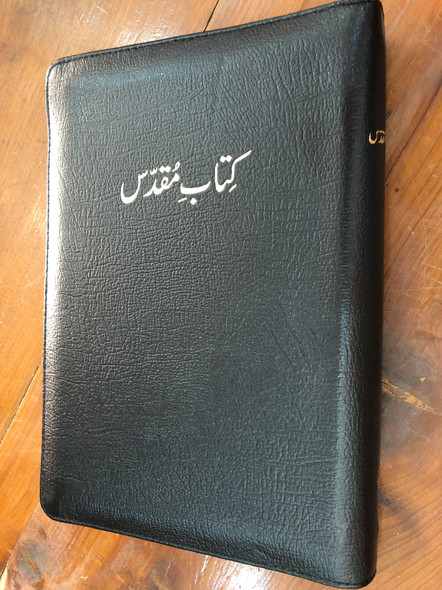Description
Blue Luganda Bible with zipper - Ekitabo Ekitukuvu ekiyitibwa Baibuli / Luganda Bible 052 PL / The Bible Society of Uganda 2019 / Vinyl bound, zipper / Endagaano Enkadde n'Empya
- Vinyl Bound 2019
- ISBN: 9789970510009 / 978-9970510009
- ISBN-10: 9970510002
- PAGES: 1207
- PUBLISHER: Bible Society of Uganda
- LANGUAGE: Luganda
Color Choices!
Bibles also available in Burgundy and Black cover with zipper!
The Ganda language or Luganda (/luːˈɡændə/, Oluganda, [oluɡâːndá]) is a Bantu language spoken in the African Great Lakes region. It is one of the major languages in Uganda and is spoken by more than 10 million Baganda and other people principally in central Uganda including the capital Kampala of Uganda. Typologically, it is an agglutinative, tonal language with subject–verb–object word order and nominative–accusative morphosyntactic alignment.
With at least more than 16 million first-language speakers in the Buganda region and 5 million others fluent elsewhere in different regions especially in major urban areas like Mbale, Tororo, Jinja, Gulu, Mbarara, Hoima, Kasese etc. Luganda is Uganda's defacto language of national identity as it's the most widely spoken Ugandan language used mostly in trade in urban areas, the language is also the most unofficial spoken language in Rwanda's capital Kigali.[8] As a second language, it follows English and precedes Swahili in Uganda.
Luganda is used in some primary schools in Buganda as pupils begin to learn English, the primary official language of Uganda. Until the 1960s, Luganda was also the official language of instruction in primary schools in Eastern Uganda.
Bible translations into Luganda
- 1893: A complete New Testament was available in one volume. Then the Old Testament books of Exodus and Joshua were translated by Pilkington and published by BFBS
- 1894: Publishing of the Books of Genesis, Psalms and Daniel by BFBS but translated by Pilkington.
- 1895: A new edition of the New Testament with corrections made by Pilkington is printed.
- Early 1896:Books of the Pentateuch are translated by Pilkington and published
- Mid-1896: Minor prophets are translated by Crabtree
- Late 1896: The entire Old Testament is published.
- 1899: A revised edition of the 1896 Luganda Bible is published by BFBS in London. The revision committee consisted of H.W Duta Kitakule, Ham Mukasa, Natanieli Mudeka, Tomasi Senfuma and Bartolomayo Musoke. The team was assisted by Jane E. Chadwick, a CMS missionary.
- 1968: A newer edition of the 1899 Luganda Bible is published with a revised orthography prepared by Christopher MS Kisosonkole. It was published by the Bible Society in East Africa.
- 1974: A Joint Translation Committee composed of the Anglican Church of Uganda, Roman Catholic Church, the Orthodox Church and the Seventh Day Adventist Church is set up and tasked with the publishing of an ecumenical version of the Gospel according to Mark.
- 1975: The Gospels of Matthew, Luke and John are published.
- 1977: The Book of Ephesians is published
- 1979: The first Joint Ecumenical Luganda New Testament is published by the Bible Society of Uganda. Bible Society of Uganda was established in 1968 although the work of translation had been started earlier by the British Foreign Bible Societies.
- 1984: The first revised Contemporary Luganda New Testament is translated by two people: Rev Yafesi K. Mwanje and Mr E. K. K. Sempebwa. It is published by Living Bibles International and is widely accepted as an easy-to-read version by people from all walks of life.
- 2001: A complete version of the Joint Ecumenical Luganda Bible is published by the Bible Society of Uganda. However, it faces a lot of resistance because of the change in nomenclature of the Bible books, as well as the inclusion of the Apocrypha. Even though the Apocrypha is accepted by the Roman Catholic Church, it is not considered Canonical especially in the wider Anglican Church, Pentecostal Church or Seventh Day Adventist Church.
- 2014: The First Revised Contemporary Luganda Bible (both Old Testament and New Testament) is published by Biblica Africa. It includes a concordance and names index. The team tasked to translate the work consisted of Omukulu. E. K. K. Sempebwa, Rev. Can. Yafesi K Mwanje, Rtd Bishop Dunstan Bukenya, Mr. Solomon Mpalanyi, Ven. Can. Nelson Kaweesa, Rev. Isaac Mukisa and Dr. Amos Mwesigwa Kasule.
.jpg)
.jpg)
.jpg)



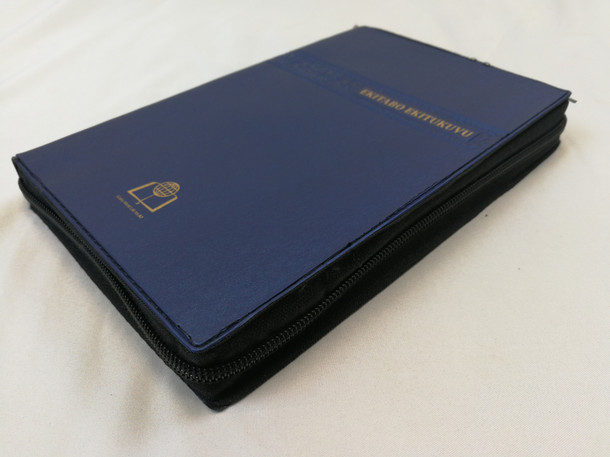


















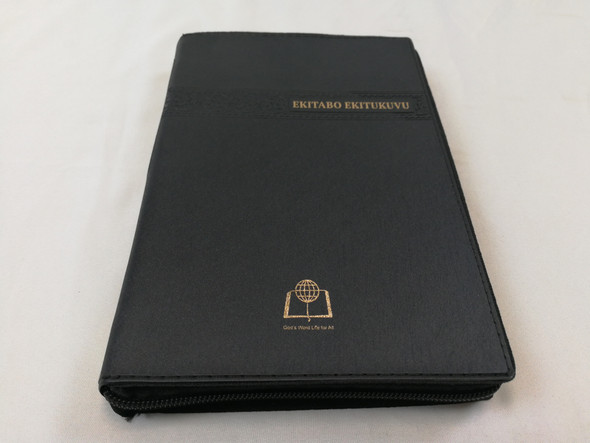




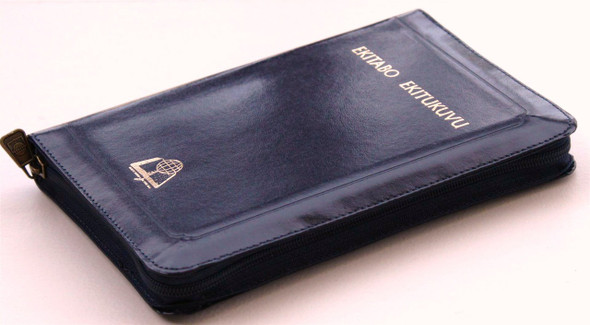
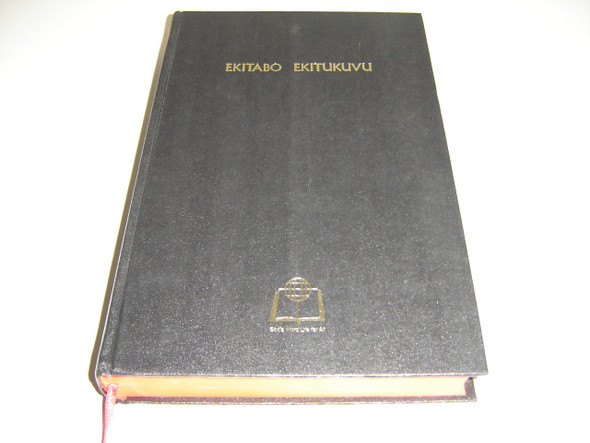

![Uganda (Luganda) Bible Black Flexcover [Hardcover] by Uganda Bible Society Uganda (Luganda) Bible Black Flexcover [Hardcover] by Uganda Bible Society](https://cdn11.bigcommerce.com/s-62bdpkt7pb/images/stencil/590x590/products/507/2309/1__45203.1462823161.JPG?c=2)

